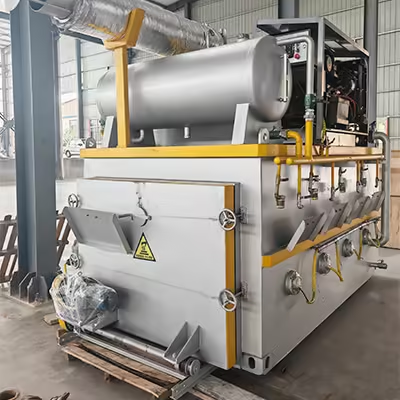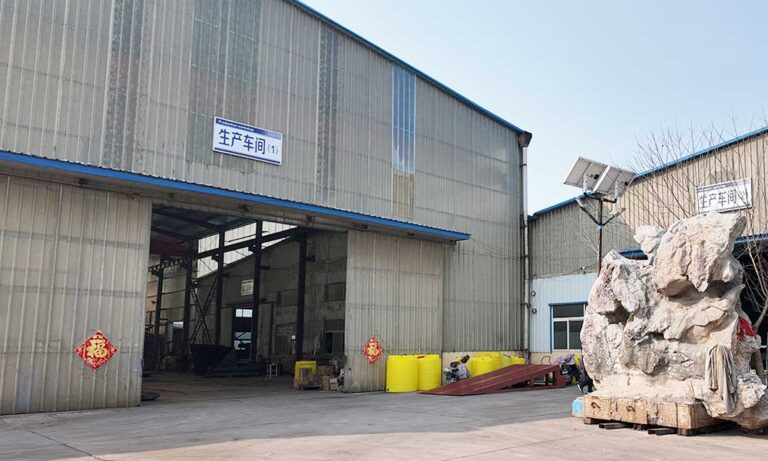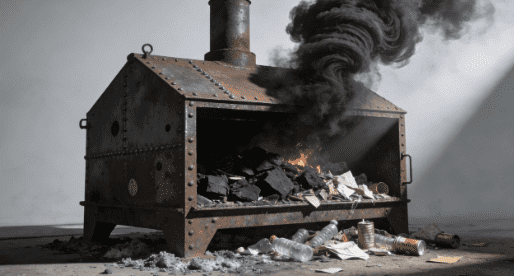Welcome to My Blog! 🌟
I’m so glad you’re here! Before we jump into the exciting content, I’d love for you to connect with me on my social media platforms. It’s where I share extra insights, interact with our amazing community, and post regular updates. Here’s how you can join the conversation:
📘 Facebook: Follow me on Facebook for more updates
Now, let’s dive into the journey ahead. I hope you find everything here both engaging and valuable. Together, let’s explore, learn, and grow! 🚀
Table of Contents
Introduction
When it comes to waste disposal, particularly in industries such as agriculture, veterinary care, and research, choosing the right equipment is crucial. Among the various methods available, animal incineration stands out as one of the most efficient, eco-friendly, and reliable ways to dispose of animal remains. This waste disposal method involves the use of high-temperature incinerators that safely reduce animal remains to ashes, ensuring that harmful pathogens, diseases, and contaminants are eliminated. However, selecting the appropriate animal incinerator is essential to ensure it meets specific requirements. In this article, we will explore the top seven benefits of choosing the right animal incinerator and how it can optimize waste management in various settings.
NO 1. Effective and Efficient Waste Disposal
Selecting the right animal incinerator significantly enhances the efficiency of waste disposal. Animal remains, including carcasses and byproducts, can be harmful to the environment if not properly managed. A high-quality incinerator ensures complete combustion, breaking down organic material at high temperatures and converting it to ash. This process eliminates hazardous components and ensures there are no residual wastes left behind, unlike landfills where decomposition can be slow and harmful.
Moreover, this incineration process ensures that the operation is quick and efficient, minimizing downtime for businesses or facilities. Whether you’re dealing with carcasses from farms, research institutions, or veterinary clinics, the right incinerator will help you streamline your waste management process, ultimately saving both time and labor costs.
Key Features of Efficient Incinerators
| Feature | Benefit |
|---|---|
| High-Temperature Combustion | Ensures complete breakdown of organic materials, leaving minimal ash. |
| Rapid Processing | Quick operation minimizes downtime, improving operational efficiency. |
| Low Maintenance | Reduced downtime for repairs or cleaning, enhancing workflow. |
| Cost-Effective | Lower operational costs through in-house processing of waste. |
NO 2. Eco-Friendly Waste Management
In today’s world, sustainability is key, and environmental regulations around waste disposal are becoming increasingly strict. One significant advantage of using animal incinerators is their eco-friendly nature. Unlike traditional waste disposal methods like landfill burial, incineration significantly reduces the potential for environmental contamination. Incinerators are designed to ensure that emissions are minimized and that harmful pathogens, bacteria, and other hazardous materials are completely eradicated during the combustion process.
Additionally, incinerators help reduce the overall carbon footprint associated with waste management. While some incinerators use energy-intensive methods, modern machines are designed with energy-efficient systems that reduce energy consumption while still delivering superior results. The ash residue left after incineration can also be easily disposed of in a safe and environmentally responsible manner, making the entire process much more sustainable.
NO 3. Safe Disposal of Hazardous Animal Waste

Animal waste, particularly from animals that have been exposed to diseases or pathogens, can pose serious health risks. In industries such as veterinary care, animal agriculture, and animal research, the proper disposal of hazardous animal waste is crucial for preventing the spread of diseases. When improperly managed, hazardous waste from animals can lead to outbreaks of diseases, endanger workers, and harm the surrounding ecosystem.
Animal incinerators are designed to handle the disposal of not only general animal waste but also hazardous materials like disease-contaminated remains. By achieving high combustion temperatures, incinerators effectively neutralize harmful microorganisms such as bacteria, viruses, and parasites. This sterilization process ensures that the waste is rendered completely safe and prevents any potential contamination from spreading. The technology used in modern incinerators provides a reliable and hygienic solution for industries that face regular exposure to hazardous animal waste.
NO 4. Reduced Operational Costs and Space Efficiency
Another key benefit of choosing the right animal incinerator is the reduction of operational costs. Traditional waste disposal methods, such as trucking animal remains to landfills or using hazardous waste services, can be expensive and require significant space for storage and processing. Additionally, the transportation costs of moving animal remains can add up over time.
An animal incinerator offers a cost-effective alternative, especially for businesses that regularly deal with large quantities of waste. By processing the waste on-site, you can eliminate transportation costs and the need for large storage areas. Furthermore, animal incinerators are often designed with a compact footprint, meaning they occupy less space, making them ideal for businesses with limited room. The compact design, coupled with on-site processing, helps save both financial and physical space, making incinerators an ideal solution for many businesses.
NO 5. Improved Compliance with Regulations
As regulations regarding animal waste disposal become more stringent, compliance is crucial for avoiding penalties and ensuring public safety. Animal incinerators are designed to meet a variety of national and international waste disposal regulations. These incinerators are built to comply with health and environmental guidelines and are certified to ensure that the disposal process meets necessary standards.
By investing in the right animal incinerator, businesses can easily meet the requirements of regulatory bodies, such as the Environmental Protection Agency (EPA) or local health authorities. Non-compliance with these regulations can result in significant fines, damage to your reputation, and even legal consequences. Using an incinerator that is both certified and up-to-date with regulatory requirements ensures you can dispose of animal waste without any legal risks. Regular inspections and certifications also ensure that the incinerators continue to meet or exceed necessary standards for safe and efficient operation.
NO 6. Versatility for Different Types of Animal Waste
One of the major advantages of using a high-quality animal incinerator is its versatility. Not all animal waste is the same, and the ability to handle different types of animal remains is essential in many industries. Animal remains can vary in size, composition, and type, requiring a machine that is adaptable and able to accommodate these different conditions.
For example, while some incinerators are suitable for small animals like poultry or laboratory specimens, others are designed for larger animal carcasses such as cattle or horses. Choosing the right animal incinerator ensures that it can process the full spectrum of animal remains that may arise in your business. This versatility makes it easier to standardize waste disposal operations across different areas of the business, allowing for smoother workflow and reducing the need for multiple waste disposal solutions.
NO 7. Long-Term Investment and Durability

Animal incinerators are long-term investments that require careful consideration. Selecting a high-quality incinerator built from durable materials is essential to ensure that the equipment can withstand the demands of regular use. A well-built incinerator will last for years and provide consistent service, which ultimately contributes to lower operational costs.
In addition, many manufacturers offer warranties and maintenance services for their animal incinerators, providing additional peace of mind and assurance of continued performance. Regular maintenance, when combined with the durability of the machine, ensures that the incinerator will continue operating at peak efficiency for its entire lifespan. Over time, the return on investment (ROI) of a well-maintained incinerator will significantly outweigh initial costs, making it a reliable long-term solution for your business.
Conclusion
Selecting the right animal incinerator offers numerous benefits, from ensuring efficient waste disposal to complying with environmental regulations. By investing in a reliable and durable incinerator, businesses can optimize their waste management processes, reduce operational costs, and contribute to a healthier and more sustainable environment. Whether you need a small incinerator for limited use or a high-capacity unit for large-scale operations, choosing the appropriate model will guarantee effective waste disposal while meeting all regulatory requirements.
FAQ
What is an animal incinerator and why is it important?
An animal incinerator safely and efficiently burns animal remains at high temperatures, eliminating pathogens and harmful substances. It offers a quick, eco-friendly, and compliant waste disposal solution.
How does an animal incinerator help with environmental concerns?
It minimizes emissions, reduces contamination risks, and ensures pathogens are fully destroyed, making it a more environmentally friendly option compared to landfills.
Can an incinerator handle different types of animal waste?
Yes, modern incinerators are versatile and can process various animal waste, from small animals to large livestock.
How does an incinerator reduce operational costs?
By processing waste on-site, it eliminates transportation and storage costs, significantly lowering overall operational expenses.
What compliance benefits does an animal incinerator provide?
It meets environmental and health regulations, helping businesses avoid fines and legal issues related to improper waste disposal.
Are animal incinerators energy-efficient?
Yes, modern incinerators are designed to be energy-efficient, reducing energy consumption while ensuring thorough combustion.
How long do animal incinerators typically last?
High-quality incinerators can last for many years, with regular maintenance ensuring long-term performance.






